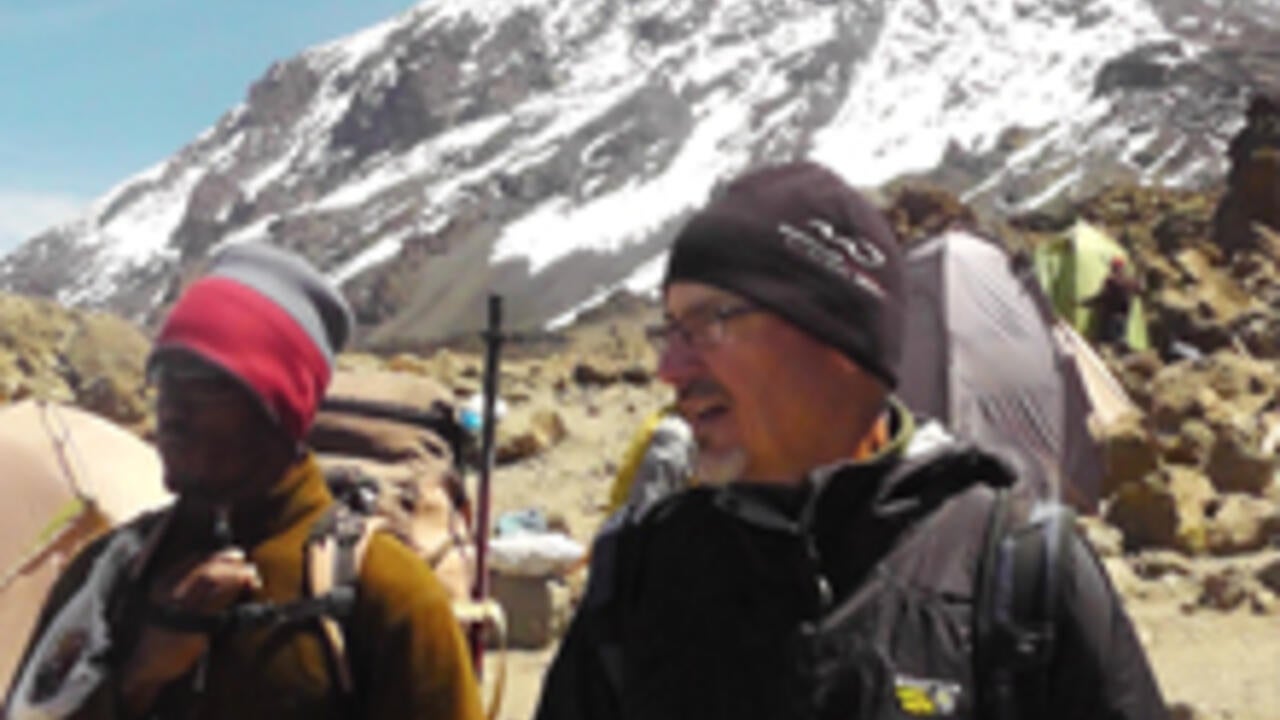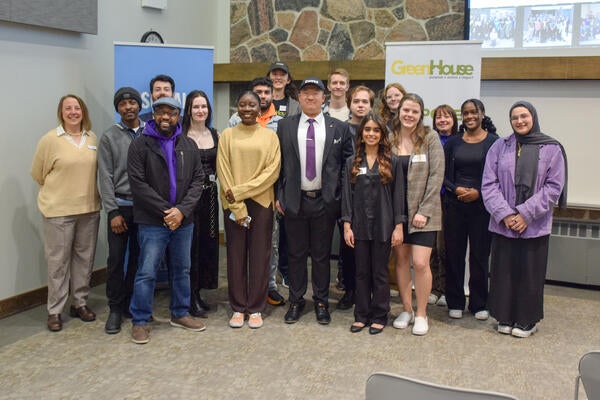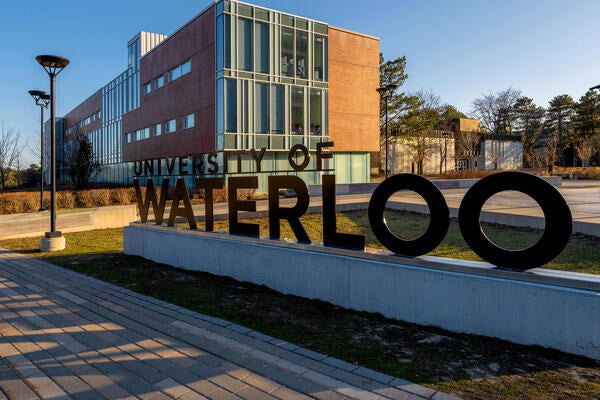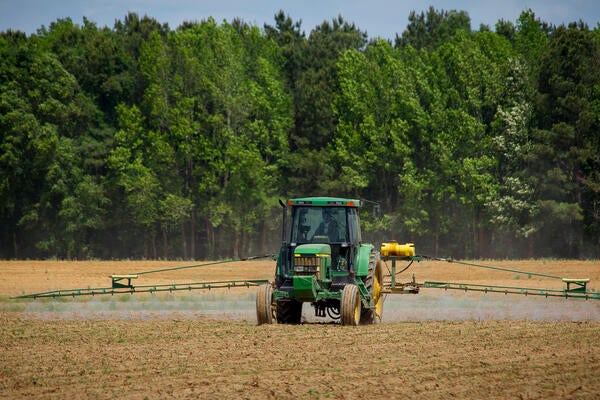
Larry Swatuk, Associate Professor in the Faculty of Environment tests a 'treadle pump' in Arusha, Tanzania.
As part of the four-year program, students equipped with strong skills in environmental management and small business go to Asia, Latin America or Africa for eight-month stints where they partner with local community groups and put their skills to work.
Currently there are 32 students working in countries including Ghana, Peru, Malawi, Botswana, Burkina Faso, Vietnam and Nepal. The key, says program director Larry Swatuk is for the students to be there long enough to be of real benefit.
One project involves working with communities to build bio-sand filters that help provide drinking water to people in the slums of Lima, Peru. Other groups are working to develop sustainable businesses in the forests of Burkino Faso and to rehabilitate a mangrove swamp in coastal Vietnam.
Communications and marketing is an important area. Some of the rural women have no idea how to market things they make. “Our students set them up with web pages, Facebook and Twitter accounts,” says Swatuk, an associate professor in the Faculty of Environment.
The program provides real benefits for both the students and the host communities.
Some of the ways students benefit include:
· Real life experience in running a project
· Skills development
· Networking
· Confidence building
Participating communities benefit by:
· Freeing the local people to manage and plan their programs by providing extra hands to help with program delivery
· Exposure to student skills and expertise
· Marketing and communications support
· Long-term improvements to health, environment and economy
In addition to the existing four-year program, the university offers a new Masters of Development Practice Program.









